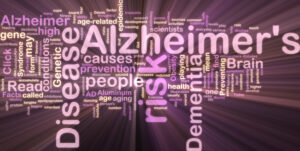Does Dementia Affect Sleeping Habits?
Dementia is a disease that affects the brain, and it can be severe in many cases. It is the loss of brain function. This disease can affect memories and how seniors understand the world around them. If your loved one struggles with this disease, it can be dangerous to leave them on their own, and you should have a senior home care provider help them. They can help the senior stay on a routine and help them live on their own through certain stages of dementia.
Unfortunately, sleep problems do occur when people struggle with dementia. When a senior with dementia struggles with sleep problems, it could heighten the severity of the disease. It is important to ensure that seniors with dementia get adequate amounts of sleep. Getting the proper amount of sleep every night may help slow down dementia, and it is something that senior home care can help with.
If things progress and the senior can’t sleep at all, it is time to go to the doctor. Caregivers can help seniors book appointments, drive them to the appointments, and ensure they have a way home after the appointment too.
How Does Dementia Affect Sleeping?

Senior Home Care Fair Oaks, CA: Sleep Habits and Dementia
Dementia affects the cellular activity in the brain, and because of this, seniors who struggle with dementia may not be able to follow a 24-hour sleep/wake cycle. You may fall asleep when the sun goes down, and your brain reacts to the light outside thanks to cellular activity and how your brain responds. Seniors with dementia do not have this. They tend to sleep more during the day and stay awake later at night.
One other thing that is very common with seniors with dementia is that they have a less deep sleep. They spend most of their time sleeping in lighter stages of sleep which may not benefit them as much as the deeper stages. When a senior does not get a night of deep sleep, they may have worse symptoms of dementia.
Sleep Disorders Common for Seniors with Dementia
Senior home care who watch after clients with dementia may notice these disorders that are common. The doctors may diagnose the seniors and help find ways to make it more comfortable to sleep at night. Pay attention to some of these disorders to better understand what a senior is struggling with.
RLS or Restless Leg Syndrome
This is the urge to move legs all night long and it can affect a seniors ability to fall asleep. It can be extremely uncomfortable.
OSA or Obstructive Sleep Apnea
This condition is when airways collapse in the middle of the night and stall breathing for several minutes. It can be painful, make sleeping more difficult, and it is extremely common for patients with dementia. Senior home care can help keep an eye on sleeping problems like sleep apnea.
REM Sleep Behavior Disorder
If you or the caregiver starts to notice that a person is acting out their dreams this can actually be one of the first signs of lewy body dementia. It will be important to monitor the individual.
If you or an aging loved-one is considering Senior Home Care in Fair Oaks, CA please contact the caring staff at Aging Assistant today. (916) 897-4752
Sources:
